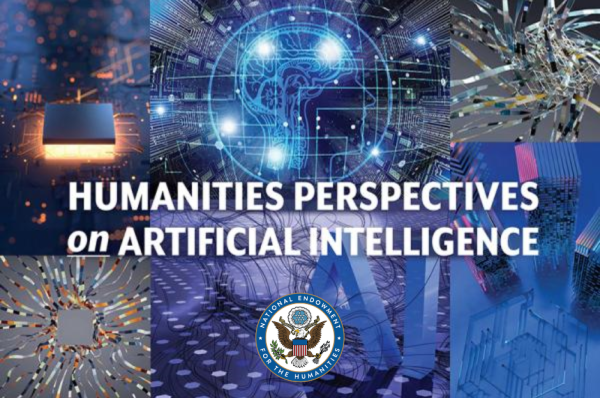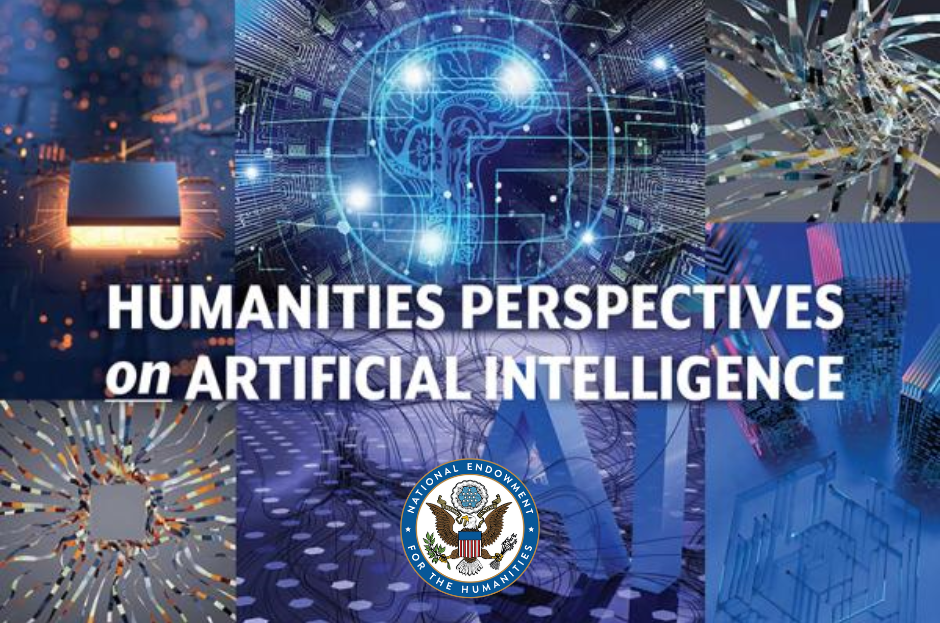Humanities Perspectives on Artificial Intelligence


Artificial Intelligence (AI) is one of the most powerful technologies of our time and will have profound consequences for civil rights and civil liberties, safety and security, and human flourishing. Questions about the impact of AI on American society and culture are fundamentally rooted in such humanities fields as ethics, law, history, philosophy, anthropology, sociology, media studies, and cultural studies.
NEH’s founding legislation tasks the agency with making the American people “masters of their technology and not its unthinking servants.” Accordingly, NEH launched "Humanities Perspectives on AI." This program encompasses several funding opportunities to support projects that bring humanities insights into exploration of the challenges and opportunities AI presents for American civic and social life. NEH is particularly interested in projects that explore the impacts of AI-related technologies for the nation’s values, including civil rights, civil liberties, privacy, and human flourishing, as well as on America’s economic competitiveness and national security.
- Humanities Research Centers on Artificial Intelligence
This NEH grant program provides up to $750,000 to universities and independent research organizations to support the creation of humanities research centers focusing on the ethical, legal, or societal implications of artificial intelligence.
- Collaborative Research
This NEH funding opportunity advances humanistic knowledge by supporting teams of scholars working on a joint endeavor.
Independent scholars or those affiliated with an institution may apply for support to research and write about topics in AI and the humanities through NEH’s Fellowships, Awards for Faculty at HBCUs, or Public Scholars funding opportunities.
Since its launch, NEH has awarded over $6 million in funding to support individual scholars and teams of researchers on a range of AI-related humanities projects. Examples include:
- NEH awarded a total of $2.72 million to Bard College, North Carolina State University, the University of Oklahoma, Norman, the University of California, Davis, and the University of Richmond to establish the first AI research centers and pilot collaborative research projects that examine AI through a multidisciplinary humanities lens.
- NEH awarded $25,000 to researchers at Eastern Connecticut State University to develop an AI-related humanities curriculum across liberal arts colleges.
- NEH awarded $216,218 to researchers at the University of Kansas to conduct a weeklong institute to teach AI literacy to secondary school, community college, and college-level humanities instructors.
- NEH awarded $200,000 to researchers at the University of Pennsylvania to work as part of a multinational team studying the role of large corporations in developing, deploying, and regulating AI in the United States, Canada, and the United Kingdom.
For information on NEH’s policy related to AI usage, please read the National Endowment for the Humanities AI usage notice.